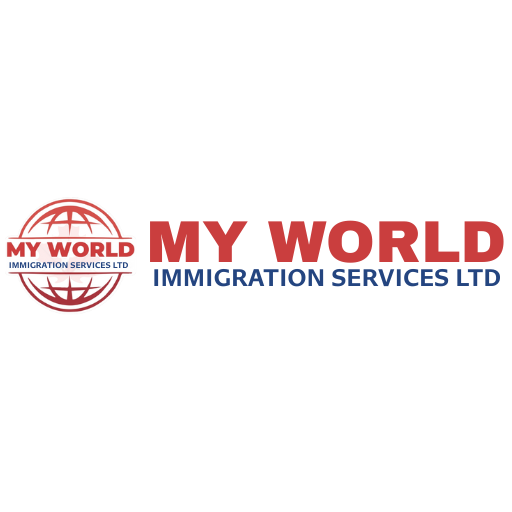
September 7, 2025
Canada Immigration Inadmissibility: Key Reasons You May Be Denied Entry
When applying for a Canada visa, study permit, work permit, or permanent residency (PR), most applicants focus only on eligibility requirements. However, many are unaware of the inadmissibility rules under Canadian immigration law that can prevent them from entering or remaining in Canada.
Even if your visa or PR application is approved, you may still be denied entry at the border if you are later found inadmissible. Understanding these rules is critical to avoiding setbacks in your Canada immigration journey.
At MyWorld Immigration, we help applicants identify and address inadmissibility concerns before they cause visa refusals or removal orders.
What Does Inadmissibility Mean in Canada?
Inadmissibility means that a person is not allowed to enter or stay in Canada under the Immigration and Refugee Protection Act (IRPA). The grounds of inadmissibility cover a wide range of issues—from security concerns to health and financial reasons.
Depending on the case, inadmissibility may result in:
- Deportation order – Permanent removal from Canada
- Exclusion order – Temporary ban (usually 1–2 years) from re-entering Canada
- Departure order – Requirement to leave Canada within a set timeframe
Common Grounds of Inadmissibility Under IRPA
Below are the major reasons you may be found inadmissible to Canada:
1. Security Grounds – IRPA 34(1)
You may be inadmissible if you are involved in:
- Espionage or subversion against Canada
- Terrorism or acts of violence
- Being a member of an organization linked to such activities
Removal Order: Deportation
2. Human or International Rights Violations – IRPA 35(1)
This includes:
- War crimes or crimes against humanity
- Genocide
- Being a senior official in a government engaged in human rights abuses
Removal Order: Deportation
3. Sanctions – IRPA 35.1(1)
You may be inadmissible if you are subject to:
- International sanctions due to corruption, human rights violations, or threats to peace
- Involvement in extrajudicial killings, torture, or financial crimes
Effect: No removal order; you simply cannot enter Canada until sanctions are lifted
4. Serious Criminality – IRPA 36(1)
Inadmissibility applies if you have:
- Been convicted in Canada of an offence punishable by 10+ years imprisonment
- Been convicted outside Canada of an equivalent serious crime
- Committed impaired driving (after Dec 18, 2018)
Removal Order: Deportation (with exceptions for refugee claimants)
5. Other Criminality – IRPA 36(2)
Examples include:
- Two or more convictions inside or outside Canada (not from the same incident)
- Conviction abroad equivalent to an indictable offence in Canada
- Impaired driving before Dec 18, 2018
Removal Order: Deportation
6. Organized Criminality – IRPA 37(1)
You may be inadmissible if involved in:
- People smuggling, human trafficking, or money laundering
- Membership in an organized criminal group
Removal Order: Deportation
7. Health Grounds – IRPA 38(1)
You can be denied entry if you are:
- A danger to public health or safety
- Expected to cause excessive demand on Canadian health or social services (over $26,220 per year as of 2024)
Exceptions: Refugees, protected persons, and sponsored dependents are exempt.
Removal Order: Exclusion
8. Financial Reasons – IRPA 39
If you are unable or unwilling to financially support yourself or your dependents without relying on social assistance, you may be deemed inadmissible.
Removal Order: Exclusion
9. Misrepresentation – IRPA 40(1)
You may be barred for:
- Providing false information or withholding key facts
- Obtaining PR or citizenship through fraud
- Being sponsored by someone found guilty of misrepresentation
Removal Order: Exclusion
10. Non-Compliance With the Act – IRPA 41
This applies if you:
- Fail to comply with visa conditions (work, study, stay limits)
- Fail to meet PR residency obligations
Removal Order:
- Exclusion for visa/study/work violations
- Departure if PR residency obligations are not met
- Deportation if you fail to obtain Authorization to Return to Canada (ARC)
11. Inadmissible Family Members – IRPA 42(1)
If your accompanying or non-accompanying family member is inadmissible (except PRs and protected persons), you may also be considered inadmissible.
Removal Order: Same as the family member
How to Overcome Inadmissibility Concerns
Dealing with inadmissibility can be complex, but possible solutions may include:
- Applying for Criminal Rehabilitation (for past offences)
- Requesting a Temporary Resident Permit (TRP)
- Obtaining Authorization to Return to Canada (ARC) after a removal order
- Medical and legal documentation to address health or misrepresentation concerns
At MyWorld Immigration, our experts review your case, identify risks, and guide you through the best legal solutions.
Final Thoughts
Canadian immigration inadmissibility is a serious and complex matter that can affect your ability to study, work, or live in Canada. Understanding the grounds of inadmissibility under IRPA helps applicants prepare stronger applications and avoid unnecessary refusals.
If you are concerned about visa refusal, inadmissibility, or removal orders, our experienced team at MyWorld Immigration can provide the guidance you need.
Visit us: www.myworldimmigration.com
Calgary Office: Unit 3236, Cityscape Landing Plaza, 4310 104 Ave NE, Calgary, Alberta
Call: +1 (672) 399-0000 | +91-99153-65566
